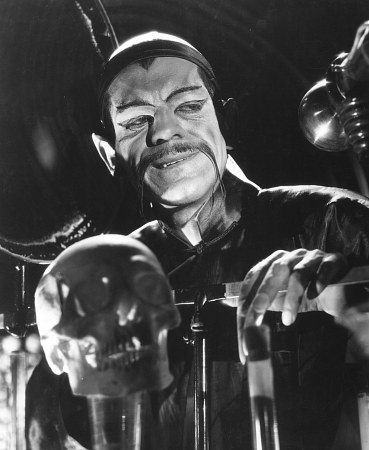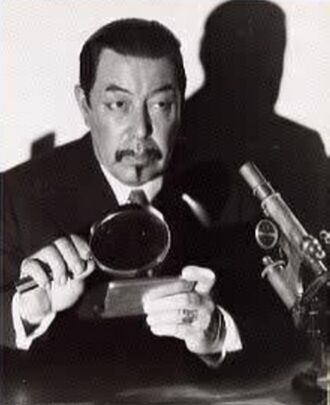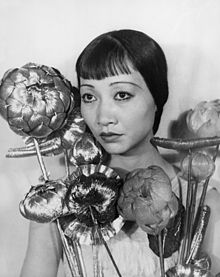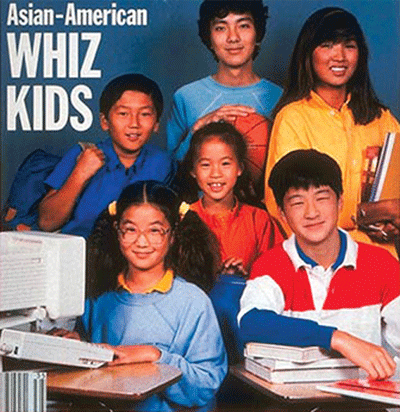Fu Manchu - a catch-all name for the male Asian antagonists in movies that are evil and evilly Asian and Asianly evil. Sometimes will speak with an accent, sometimes without. Often portrayed as sly, manipulative, cunning, and in some cases, with an insatiable appetite for sex, usually lusting after white woman.
Charlie Chan - another catch-all phrase for the polar opposite of the Fu Manchu. A character that is a Charlie Chan or a son of Chan is subservient, "adorable," a kiss-ass to white characters, asexual (towards anyone in any race), often portrayed with a heavy accent.
Lotus Blossom/China Doll - a subservient, demure girl with no backbone and no feelings. Often shown as an innocent, beautiful sexual toy who is corrupted by and infatuated with white men. The accent or lack thereof changes with every role.
Dragon Lady - the female Fu Manchu. Often has a penchant for killing people or busting out some karate chop hands. She is fierce, cunning, manipulative, powerful and a dangerously sexy gold digger.
 The Badass Mute - also known as the Bruce Lee, or, depending on the age of the character, a Mr. Miyagi. A buff and wise kung fu master who only speaks in proverbs and remains serene until it's time to kick some ass and then meditate. Sometimes a sexualized character, sometimes not. Enforces the idea that Asian people all have the innate ability to perform martial arts.
The Badass Mute - also known as the Bruce Lee, or, depending on the age of the character, a Mr. Miyagi. A buff and wise kung fu master who only speaks in proverbs and remains serene until it's time to kick some ass and then meditate. Sometimes a sexualized character, sometimes not. Enforces the idea that Asian people all have the innate ability to perform martial arts. Model Minority - referring to a minority group who is considered "successful" in a society where the majority is not. When applied to Asians, it implies that they will keep their head down, earn perfect scores on their SATs, not make a fuss when made fun of. Asians are considered hardworking and incredibly smart in math and science, or piano prodigies. The model minority stereotype foists higher expectations on people of Asian descent to do well and be naturally good at everything, except perhaps having a backbone or be socially present in white-dominated society.
The Perpetual Foreigner - the assumption that Asians will never fully integrate into American society because of their race, and that they will always have an accent, always be loyal to their "mother country," and never be truly American. This is more of a subconscious stereotype that serves as a backdrop to the top 5 definitions listed here.
I'll add more later, promise.





















